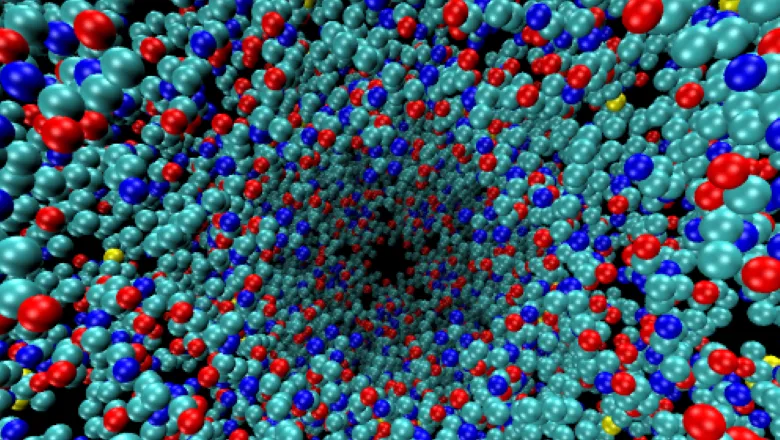I am very pleased that King’s will continue to be part to such a distinguished and established institution through the JCMaxwell node, named after James Clerk Maxwell who was at King’s between 1860 and 1865. The activities and events organized by our node, often in partnership with the Thomas Young Centre, are particularly important for PhD students and early career researchers in materials and molecular modelling who can experience a lively and international research environment.
Professor Carla Molteni
30 June 2020
JCMaxwell Node of CECAM renewed until 2024
Founded in 1969, CECAM, the “Centre Européen de Calcul Atomique et Moléculaire”, promotes fundamental research on advanced computational methods and their application to important problems in frontier areas of science and technology.

The JCMaxwell node is one of seventeen nodes set up by CECAM internationally to fulfill its mission. It is a consortium of five leading UK universities involving over 100 research groups from King’s, Imperial College London, University College London, the University of Cambridge and the University of Oxford. It works alongside the London Thomas Young Centre for the Theory and Simulation of Materials, providing an international context, further enhancing the research environment of its institutions and of the materials and molecular simulations community.
CECAM has been hosting a number of online events to bring together the international community during the COVID-19 crisis, including the role of simulations in COVID research and on the impact of High Performance Computing on materials and molecular modelling.
Professor Carla Molteni, who represents King’s in the management team of the CECAM JCMaxwell node, said:
Professor Peter Main, Head of the Department of Physics at King’s, welcomed the renewal;
International collaboration has always been an essential part of physics and we at King's are delighted that the JCMaxwell node of CECAM has been renewed for a further four years. Computational capacity has increased dramatically since the creation of CECAM more than 50 years ago, and that growth has revolutionised the study of materials and molecular simulations.
Professor Peter Main

